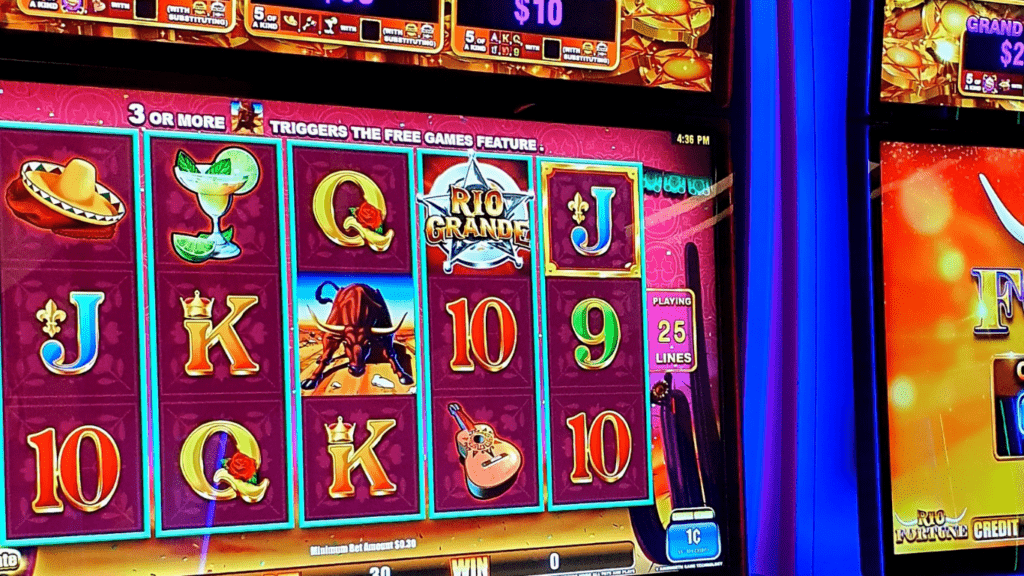Understanding Slot Machine Payout Rates
Slot machine payout rates are essential for making informed decisions when playing. Knowing how these rates work enhances the gaming experience.
What Is a Payout Rate?
A payout rate, or return-to-player (RTP) percentage, represents the portion of wagered money a slot machine returns to players over time. For instance, a machine with an RTP of 95% returns $95 for every $100 wagered, averaged over extended play periods. This figure indicates the potential return, though short-term variance can deviate from this average.
Importance of Knowing Payout Rates
Recognizing payout rates enables players to select machines that offer better chances of winning. Higher RTP percentages generally equate to more favorable odds. Casinos typically don’t display RTP, but researching online or consulting with casino staff can uncover these details, leading to smarter gameplay choices.
Researching Casino Slot Machines
Finding slots with the highest payout rates begins with effective research. Uncover strategies and insights to identify top-performing slot machines for a better gambling experience.
Identifying High Payout Casinos
- Start by selecting casinos known for high payout rates.
- Casinos, especially in major gambling hubs like Las Vegas, often have different sections with varying payout percentages.
- When I visit a casino, I check its reputation. Reliable casino lists are available on gambling forums and industry websites.
- Opt for venues with a history of favoring higher RTP games, as these venues are more likely to host generous slots.
Utilizing Online Resources and Reviews
I leverage online resources to dig deeper into slot machine payouts. Websites dedicated to slot reviews often provide detailed RTP information. Blogs and forums, hosted by seasoned gamblers, offer firsthand insights about machine performance. I also explore online casino communities and review sites where players discuss their experiences. This approach helps me discern which slots offer the best chances, saving time and money during my casino visits.
Analyzing Slot Machine Features

Understanding slot machine features is crucial in identifying ones with the highest payout rates. Examining volatility and RTP values offers insight into potential rewards and risks.
Volatility and RTP: What They Mean
Volatility measures the risk associated with a slot machine, affecting the frequency and size of payouts. High volatility slots offer larger payouts less frequently, while low volatility slots deliver smaller wins more often. RTP (Return-to-Player) is the percentage of wagered money a slot returns over time. Higher RTP percentages, such as 96% or more, typically provide better odds for players. Evaluating both factors helps in selecting slots that match my gaming preferences.
Progressive vs. Non-Progressive Slots
Progressive slots accumulate a portion of each bet into a growing jackpot, often resulting in life-changing sums. These machines may boast lower RTP rates, as some of the wagered money funds the jackpot. Non-progressive slots offer fixed payouts and usually feature higher RTP percentages, providing more consistent returns. Deciding between the two depends on whether the allure of a massive payout outweighs the desire for steady returns.
Tips for Maximizing Payout Potential
Understanding payout potential enhances the gambling experience and optimizes wins. Specific strategies tailored to timing and budgeting can further improve chances of success.
Choosing the Right Time to Play
- Time selection impacts slot machine payouts due to fluctuations in casino traffic and machine use patterns.
- While casinos operate around the clock, choosing less crowded times can provide multiple benefits.
- Early morning or weekday afternoons generally see fewer players, allowing better access to high-demand machines.
- Machines might also be ‘filled up’ with coins then, creating opportunities for larger payouts.
- Observing peak hours and understanding visitor patterns in specific casinos enhances chances of victory.
Setting a Budget and Sticking to It
Budget management enhances gaming efficiency by controlling spending and reducing losses. Setting limits before starting plays prevents overspending. I break down my budget, allocating specific amounts for different machines, allowing flexibility without exceeding limits. Tracking each session’s spending helps adjust future budgets and improve financial management. Consistent budget adherence doesn’t just protect finances; it enhances decision-making, ensuring a focused and engaging gaming experience.
Common Myths About Slot Machines
Several myths circulate about slot machines, shaping players’ expectations and strategies in misleading ways. Understanding these misconceptions helps refine gameplay tactics and improve decision-making.
Debunking Popular Misconceptions
A common myth suggests machines near entrances or high-traffic areas offer higher payouts. However, casinos distribute slots randomly. Another misconception claims a machine is “due” for a payout after long dry spells, but each spin is independent, governed by random number generators without memory. Some believe higher denomination machines have better odds, yet payout rates depend on the specific machine and its RTP, not the denomination.
Understanding the Role of Luck
Slots rely heavily on luck, with skill having minimal influence. Each result is determined by a random number generator, ensuring unpredictability and fairness in each spin outcome. While choosing machines with higher RTPs offers slightly better odds, luck remains the primary factor determining winnings, with the house maintaining an edge over time.

 Audrey Chapple played a pivotal role in shaping Wild Gamble Greed, contributing her expertise to the platform’s strategic direction and content development. With a keen understanding of the high-stakes gambling world, she ensured that every resource provided valuable insights tailored to the needs of serious players. Audrey’s dedication to promoting responsible gambling and enhancing user engagement has significantly enriched the platform’s offerings.
Audrey Chapple played a pivotal role in shaping Wild Gamble Greed, contributing her expertise to the platform’s strategic direction and content development. With a keen understanding of the high-stakes gambling world, she ensured that every resource provided valuable insights tailored to the needs of serious players. Audrey’s dedication to promoting responsible gambling and enhancing user engagement has significantly enriched the platform’s offerings.